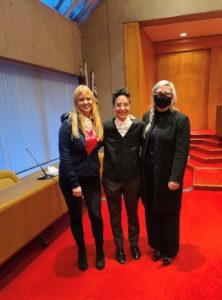Yesterday, the British Columbia Court of Appeal certified a class action brought by representative plaintiff Mandalena Lewis against Westjet Airlines.
The lawsuit claims that WestJet breached its contracts with a class of female flight attendants by failing to design, implement, and maintain a workplace program designed to combat harassment. The class seeks a remedy requiring WestJet to disgorge its cost savings from failing to implement the promised program.
To certify a class action, a representative plaintiff must satisfy a court that the claim meets five criteria, including that a class action is the preferable method for fairly and efficiently resolving issues common to the class. The certification judge in this case found that all the criteria except for preferability were met. The certification judge instead found that the preferred procedure was for class members to bring discrimination claims to the Canadian Human Rights Tribunal.
The main focus of the appeal was on whether a class action was the preferred procedure. Ms. Lewis argued, and the Court of Appeal agreed, that a claim under the Canadian Human Rights Act is fundamentally different than the claim she is advancing on behalf of the class and would impose additional barriers to access to justice.
Specifically, the Human Rights Act requires that complaints prove a discriminatory practice (in this case, harassment) but Ms. Lewis’ claim is not that WestJet engaged in any discriminatory practice. Rather, Ms. Lewis says that WestJet breached its contracts with all its female flight attendants by failing to have an effective program to combat harassment in place as promised.
The Court of Appeal held that in finding the Human Rights Tribunal to be the preferable procedure, the certification judge had impermissibly recast the claim as one grounded in discrimination rather than breach of contract.
The distinction between the two types of claims is critical from an access to justice perspective because a complaint brought under the Human Rights Act requires the claimant to prove harassment. The focus of such a proceeding is on the alleged harassing behaviour, and a complainant’s credibility is often attacked. Complainants are also required to disclose their identities and name their harassers and employers.
In Ms. Lewis’ claim, the focus is on whether WestJet fulfilled its promise to combat harassment by having an effective program. The fact that some flight attendants were harassed may be evidence of the breach, but is not the focus of the claim.
By focusing on WestJet’s conduct in failing to fulfill a key contractual promise, its female employees are able to hold Westjet accountable for a critical workplace program without having to wait until they are harassed and then bring a human rights complaint against the harasser and their employer.
Many women with credible harassment claims are deterred from such a process, as they cannot remain anonymous, they must bring claims against their employers when they may still wish to remain employed, and they risk starting a proceeding that focuses heavily on their credibility. As a result, many meritorious claims are not pursued.
Ms. Lewis’ claim is important because it focuses on whether preventative systems and programs were in place, rather than on proving individual instances of harassment. The Court agreed with Ms. Lewis that bringing the claim as a class action would also fully resolve numerous other “procedural and substantive access to justice concerns” facing the class, including limitations issues, access to the specific remedy sought, and jurisdiction to hear the breach of contract claim. The Court of Appeal’s decision is an important step towards ensuring that Ms. Lewis’ claim—and the claims of the class members—can be heard on their merits.
Legal Team: Karey Brooks QC, Aria Laskin, Naomi Moses

